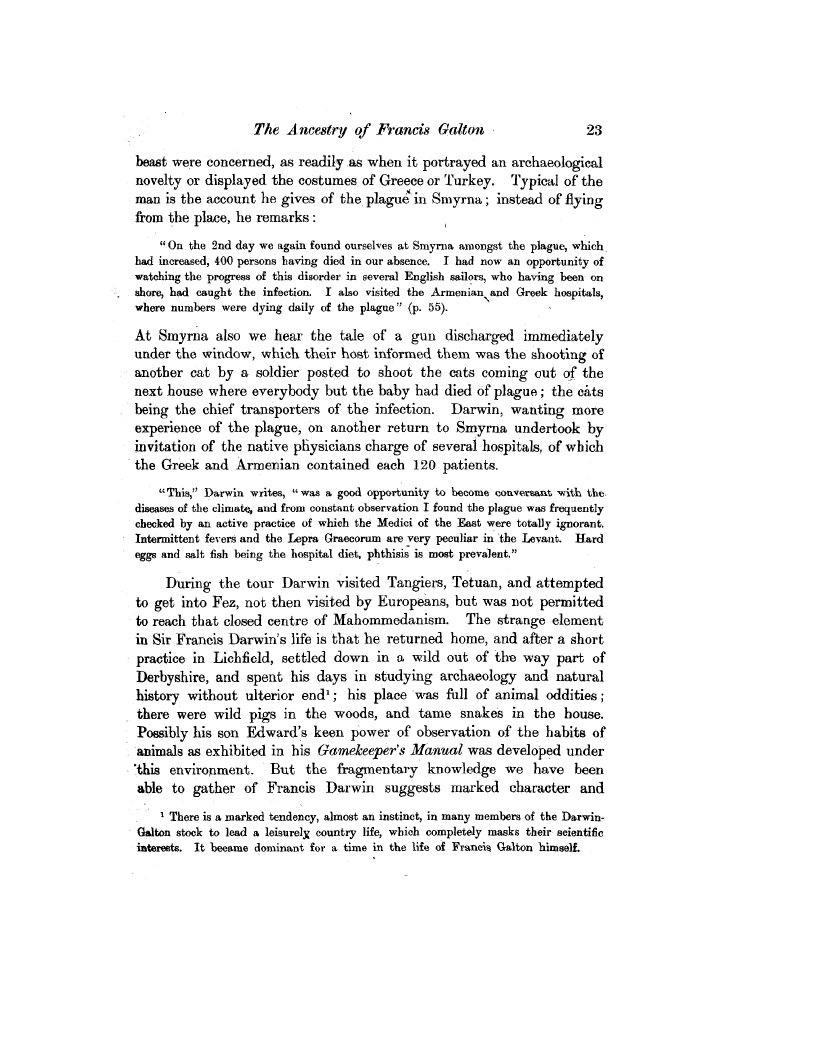| ||||||

OCR Rendition - approximate
The Ancestry of Francis Galton 23 beast were concerned, as readily as when it portrayed an archaeological novelty or displayed the costumes of Greece or Turkey. Typical of the man is the account he gives of the, plague in Smyrna ; instead of flying from the place, he remarks "On the 2nd day we again found ourselves at Smyrna amongst the plague, which had increased, 400 persons having died in our absence. I had now an opportunity of watching the progress of this disorder in several English sailors, who having been on shore, had caught the infection. I also visited the Armenian, and Greek hospitals, where numbers were dying daily of the plague " (p. 55). At Smyrna also we hear the tale of a gun discharged immediately under the window, which their host informed them was the shooting of another cat by a soldier posted to shoot the cats coming out of the next house where everybody but the baby had died of plague ; the cats being the chief transporters of the infection. Darwin, wanting more experience of the plague, on another return to Smyrna undertook by invitation of the native physicians charge of several hospitals, of which the Greek and Armenian contained each 120 patients. "This," Darwin writes, "was a good opportunity to become conversant, with the diseases of the climate, and from constant observation I found the plague was frequently checked by an active practice of which the Medici of the East were totally ignorant. Intermittent fevers and the Lepra Graecorum are very peculiar in the Levant. Hard eggs and salt fish being the hospital diet, phthisis is most prevalent." During the tour Darwin visited Tangiers, Tetuan, and attempted to get into Fez, not then visited by Europeans, but was not permitted to reach that closed centre of Mahommedanism. The strange element in Sir Francis Darwin's life is that he returned home, and after a short
Galton stock to lead a leisurely country life, which completely masks their scientific interests. It became dominant for a time in the life of Francis Galton himself.
|